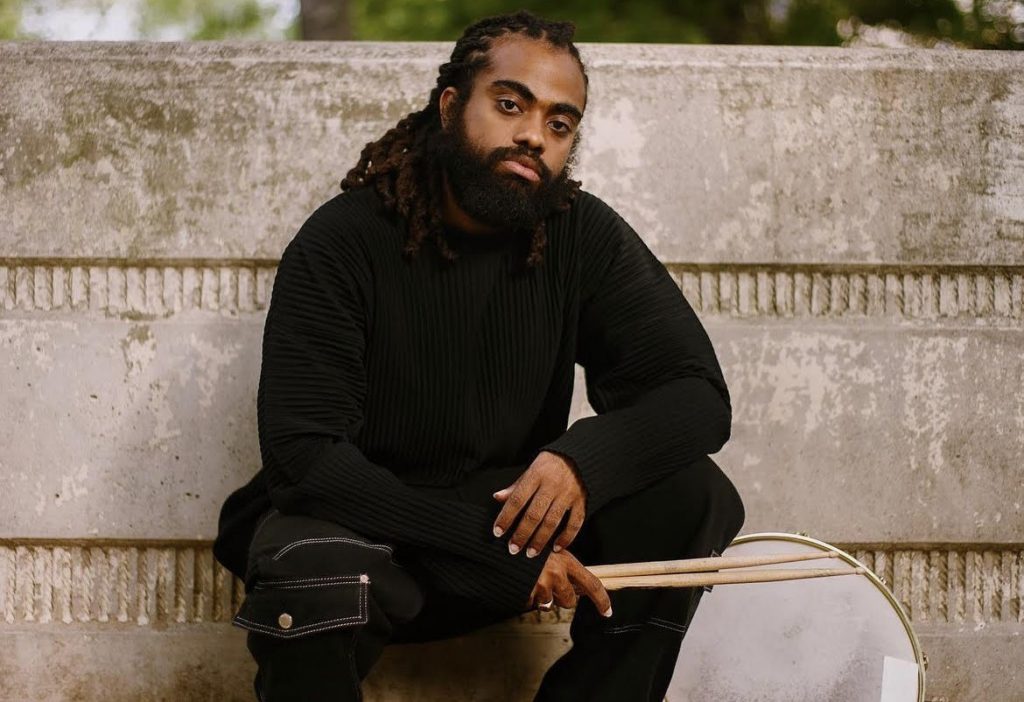An underground oasis of speakeasy-like splendor in the midst of San Francisco’s gritty Tenderloin, Black Cat has become the region’s primary portal into the polyrhythmic future of jazz.
The latest manifestation of the music’s increasingly international reach is the return of Trinidadian drummer Adriel Vincent-Brown, who made his Bay Area debut at the club last year. For his second engagement, the 29-year-old performs eight shows over four nights, May 9-12, with his trio The Force and special guests.
Without particularly planning it, The Force has taken on the lilt and rhythmic contours that Vincent-Brown soaked up as a child playing in Catholic church services and accompanying steel band orchestras. He thought he’d left that all behind when he moved to New York in 2013, but he quickly found that his musical roots gave him his “special sauce.”
“When other musicians started asking me what calypso records they should check out I realized this is what set me apart,” he said. “Cats from New Orleans, no matter what they play, they put those grooves in the music. But ultimately, a lot of music comes from Africa and those influences are so strong and powerful they make their way into whatever is going on.”
New Orleans’ cultural enmeshment with the Caribbean is often cited as an essential ingredient in jazz’s emergence as a distinct idiom in the first decades of the 20th century. As argued persuasively by Trinidadian trumpeter and percussionist Etienne Charles, with whom Vincent-Brown performed at the SFJAZZ Center last December, many of jazz’s most influential musicians either hailed from the Caribbean, like Panamanian pianist Luis Russell and Jamaican pianist Wynton Kelly, or were born into families from the West Indies, like Sonny Rollins, Roy Haynes, Oscar Peterson, and Fats Navarro.
And of course, New Orleans wasn’t the only city that was rife with Caribbean culture. In New York, Dizzy Gillespie and Charlie Parker “heard the original calypsonians, and the calypsonians were good friends with the bebop cats,” Vincent-Brown said.
“What’s happened now is that the influences are more direct. You have Etienne, and Godwin Louis, whose family is from Haiti, and trumpeter Giveton Gelin from the Bahamas,” who was part of The Force at Vincent-Brown’s first Black Cat residency.
He’s made his own mind-expanding New York connections, playing with Cuban pianist Axel Tosca and Puerto Rican bass maestro John Benitez, whose music has been steeped in kindred rhythms defined by clave, the fundamental Afro-Cuban rhythmic pattern.
“I’d always been into Latin jazz, but in New York I was learning about timba and rumba with Axel Tosca, who I play with a lot now,” Vincent-Brown said. “He could also play jazz and I wanted to tap into his world.”
If Vincent-Brown’s pan-Caribbean sound is a harbinger of jazz to come, the trio he brings to San Francisco offers another glimpse at the music’s rising tide. At 21, New York-reared pianist Esteban Castro has already racked up a series of daunting firsts. After becoming the youngest ever winner of the Montreux Jazz Piano Solo Competition in 2016 he pulled off a similar feat the following year at 14, when he was the youngest person to ever win the Jacksonville Jazz Piano Competition.
Castro, who just graduated from Juilliard, has forged a deep rhythm section connection with Milwaukee-reared, Oberlin Conservatory-trained bassist Gervis Myles, another player rapidly making a name for himself in New York. They’ve all found mentors amidst the city’s teaming ranks of veteran masters.
For Vincent-Brown, the key artist “who really helped to shape” him was drummer Lenny White, who gained fame playing on seminal jazz/rock fusion albums by Miles Davis and Chick Corea.
“I studied with a bunch of great drummers, and Lenny White was very influential,” he said. “He’s so real. He’ll give it to you raw. ‘You need to get this together,’ not said in a mean way, but so it’s very clear. To come from Trinidad, where I’m listening to Jeff ‘Tain’ Watts, and then to see him in person and feel that power in front of you, it’s intense.”
With a rhythmic palette drawing on grooves from across the African diaspora, Vincent-Brown is now the player inspiring younger musicians to go home and practice.
Contact Andrew Gilbert at [email protected].
ADRIEL VINCENT-BROWN & THE FORCE
When: 7 and 9:15 p.m. May 9 and 12; 7 and 9:30 p.m. May 10-11
Where: Black Cat, 400 Eddy St. San Francisco
Tickets: $25-$55; blackcatsf.com


